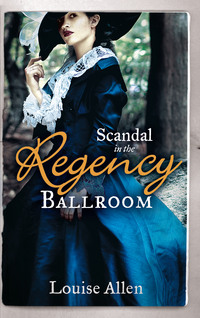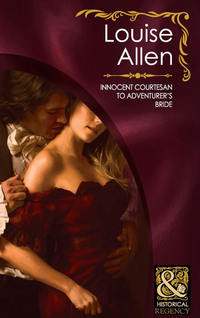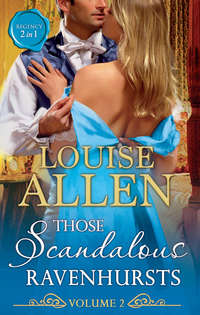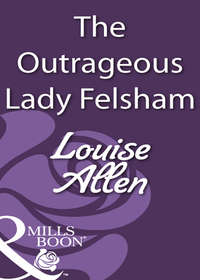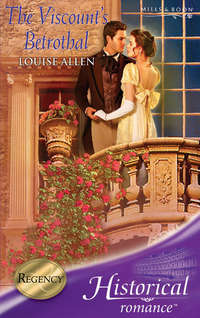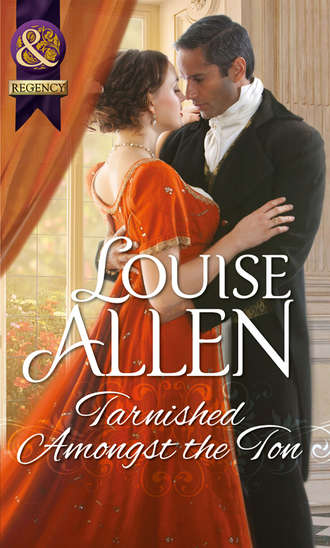
Полная версия
Tarnished Amongst the Ton
‘Of course,’ his oh-so-demure little sister said. ‘So, were you flirting?’
‘No. I do not flirt with plain French shopkeepers.’
‘Hmm. I’m not so certain she is plain,’ Sara said. ‘I think she would like to appear so. Perhaps because she has trouble with rakish gentlemen like you.’ They stopped before a rambling pile of red brick with two scarlet-coated guards standing in front. ‘What on earth is that?’ she asked before Ashe could demand why she considered him rakish and how she would know a rake if she saw one.
He had been doing his homework. ‘St James’s Palace. It is very old.’
‘It is a sorry excuse for a palace, in my opinion—the most junior raja can do better than that.’ Sara wrinkled her nose in disapprobation.
‘Come on, we’ll go through to the park.’ Ashe took her past the guards before they could be arrested for lèse-majesté or whatever crime being rude about the sovereign’s palaces constituted.
‘So, are you looking for a mistress?’ she enquired as they went through the improbably named Milkmaids’ Passage and into Green Park.
‘No!’ Yes. But he certainly was not going to discuss that with his little sister. It was far too long since he had been with a woman. There had been women after Reshmi—he was not a monk, after all—but the voyage had lasted months and the ship might as well have been a monastery.
‘You will be looking for a wife, though. Mata said you would be. At least there are lots more women in London to fall in love with than there were in Calcutta society.’
‘I have no intention of falling in love. I need to find a wife suitable for a viscount.’ And one who was heir to a marquisate at that.
‘But Father and Mata made a love match. Oh look, cows wandering about. But they aren’t sacred, are they?’
‘Shouldn’t think so.’ He spared the livestock a glance. ‘Not unless the Church of England has developed some very strange practices. Look, there are milkmaids or cow herds or something.
‘Our parents met and fell in love before they knew Father’s uncle had died, making grandfather the heir,’ he reminded her. ‘Mata even ran away when she found out before the wedding because she did not think she would make a good marchioness.’
‘I know, but it is ridiculous! She is clever and beautiful and brave,’ Sara said fiercely. ‘What more could be needed?
‘She is the illegitimate daughter of an East India Company merchant and an Indian princess—not the usual English aristocratic lady, you must agree. She only agreed to marry Father and to take it on because she loves him—why do you think he stayed in India until the last possible moment?’
‘I thought it was because he and his father hated each other.’
That was one way of describing a relationship where a bitter wastrel had packed his own seventeen-year-old son off to India against his will.
‘Father made his own life, his own reputation, in India. He never wanted to come back, especially with Mata’s anxieties, but they know it is their duty.’ He shrugged. ‘And one day, a long way away, I hope, it will be mine. And I’m not putting another woman through what our mother is having to deal with. So much to learn, the realisation that people are talking behind her back, assessing whether she is up to it, is well bred enough, watching for every mistake.’
‘I had not realised it would be that bad. I am an innocent after all,’ Sara said with a sigh. ‘I will do my best not to add to their worries.’ She flashed him a smile. ‘I can be good if I try. And I suppose if you find the right wife she will be a help to Mata, won’t she?’
‘Yes,’ Ashe agreed, wishing it did not feel so much like buying a horse. ‘She can take on some of the duties of chaperon for you once we are married. And a suitable bride will have social and political connections.’ He knew little about English politics as yet, but the intrigues of an Indian court seemed simple in comparison to what he had read.
‘I want to find someone like Mata found Father. Poor Ashe.’ Sara squeezed his arm companionably. ‘No love match for you.’
He should have answered faster, made a joke of it, because Sara knew him too well. ‘Oh, was there someone?’
‘Yes. Perhaps. I don’t know.’ He was mumbling. He never mumbled. Ashe got a grip on himself. ‘It never got that far.’
‘Who?’ When he didn’t answer she asked, ‘At Kalatwah?’
Reshmi. The Silken One. Great dark eyes, a mouth of sinful promise, a heart full of joy and laughter. ‘Yes.’
‘You left her?’
‘She died.’ Two years ago. It was impossible, he had known it was doomed from the start and finally he had told her, far too abruptly because he didn’t want to do it. They said it was an accident that she had trodden on a krait hidden in the dry grass and he tried to believe that it was chance, that she would never have chosen to kill herself in such a ghastly, painful way. But his conscience told him that she had been too distracted, too full of grief to be as careful as she normally was.
It was his fault. Since Reshmi he had organised his liaisons with clinical care, generously but with no misunderstandings on either side. And no attachments either.
‘It was a long time ago, I don’t think of her now.’ He tried not to, because when he did there was still the ache of her loss, the memory of the sweetness of her lips on his. The guilt at having had so much power over another person’s happiness and having failed her.
He would never find it again, that almost innocent feeling of first love. It had been cut short, like an amputation, and that, and the guilt, was why it hurt. He would never be that young, or foolish, again, which was a mercy because love seemed to hurt both parties. How would the survivor cope with the pain if one of his parents outlived the other?
Sara leaned into him and rested her head against his shoulder for a moment, too sensitive to ask more. After a moment she said, ‘Look, they are milking the cows. Is that not truly incredible? Right by the palace!’ She let go of his arm and ran across the grass, laughing, so he strode after her over the green grass, shaking off the heat and colours of India. That was the past.
Chapter Three
‘How elegantly your daughter dances, Mrs Fogerty.’ Judging by the amount of money lavished on Miss Fogerty’s clothes and the almost painful correctness of her manners, elegant was likely to be a very acceptable compliment to her doting mama.
‘Why, thank you.’ The matron simpered and made room on the upholstered bench to allow Phyllida to sit down. Her efforts to recall to whom she was speaking were painfully visible, but Phyllida did not enlighten her. ‘Her partner is an excellent dancer.’ Mrs Fogerty watched Gregory closely.
‘The Earl of Fransham? Yes, indeed. A very old family.’ Phyllida waved her exquisite fan gently and allowed Mrs Fogerty a good look at the antique cameos she was wearing. All part of her stock, although now when she wanted to sell them she would have to go to another dealer or they might be recognised.
‘You are related to him?’ The older woman was avid for details.
‘A connection.’ If it came to serious courtship, Phyllida was resigned to fading completely into the background. ‘Large estates, of course, and the most magnificent country house.’ With dozens of buckets under the drips, death watch beetle in the roof and pleasure gardens resembling the darkest jungle. ‘Although,’ she lowered her voice, ‘like so many of the really old noble families, the resources to invest are sadly lacking.’
‘Indeed?’ Mrs Fogerty narrowed her eyes and regarded Gregory’s handsome figure and impeccable tailoring with sharpened interest. To Phyllida’s delight she had picked up on the hint that the earl was in the market for a rich wife and was not in a position to be picky about bloodlines.
Mr Fogerty, a self-made Lancashire mill owner, was high on her list of wealthy parents in search of an aristocratic son-in-law and Emily Fogerty seemed bright and pleasant, although perhaps not strong-willed enough to deal with Gregory. She was not the only one under consideration, however, nor her favourite. After a few minutes of conversation Phyllida excused herself and drifted off in search of Miss Millington, the sole child of banker Sir Ralph Millington and her ideal candidate.
‘Phyllida Hurst!’ The Dowager Countess of Malling stood close to the main entrance of the Richmonds’ ballroom.
‘Ma’am.’ She curtsied, smiling. The old dragon scared half the ton into instant flight, but she amused Phyllida, who knew the kind heart behind the abrasive exterior. ‘May I say what a very handsome toque you are wearing?’
‘I look a fright in it.’ The old lady patted the erection on her head and smiled evilly. ‘But it amuses me. Now, what are you up to these days, my dear?’
She was some kind of connection of Phyllida’s mother and had done a great deal to mitigate the damage of her parents’ scandalous marriage and make the Hurst siblings acceptable to the ton, so Phyllida always made time to relay gossip, have her gowns criticised and enquire after the Dowager’s pug dogs, Hercules and Samson.
‘Shall we sit down, ma’am?’
‘And miss all the arrivals? Nonsense.’ Lady Malling fetched Phyllida a painful rap on the wrist with her fan. ‘Give me your arm, child. Now, who is this? Oh, only Georgina Farraday with her hair even blonder than normal. Who does she think she is deceiving?’ The set had just finished, the music stopped and her voice cut clearly through the chatter.
Phyllida suppressed a smile. ‘I dare not comment, ma’am,’ she murmured.
‘Pish! Ah, this is more interesting. Now that is what I call a fine figure of a man.’
Phyllida had to agree. The gentleman standing just inside the entrance was in his late fifties, but she doubted he had an inch of spare flesh on his lean, broad-shouldered body. His hair was silver-gilt, his evening dress was cut with an expensive simplicity that set off his athletic frame and on his arm was a striking golden-skinned woman with a mass of dark brown hair piled in an elaborate coiffure.
‘He is certainly handsome. And so is his lady—see how beautifully she moves. She must be foreign—Italian, do you think?’ And indeed, the curvaceous figure in amber silk made every other woman in the room look clumsy as she came forwards, a faint smile on her lips, head high. There was something faintly familiar about the couple, although surely she would have remembered if she had seen either of them before?
‘Of course,’ the dowager said with a sharp nod of satisfaction as she made the connection. ‘Not Italian, Indian. That, my dear, must be the Marquess and Marchioness of Eldonstone. He hasn’t been in the country for forty years, I should think. At outs with his father, for which no one could blame him. Now the old reprobate is dead they have come home.
‘The wife, so they say, is the child of an Indian princess and a John Company nabob. Interesting to see what society makes of her!’
‘Or she of society.’ The marchioness looked like a panther in a room full of domestic cats. A perfectly well-behaved panther and a collection of pedigree cats, of course, but the fur would fly if they tried to tweak her tail, Phyllida decided, admiring the lady’s poise.
Then the couple came further into the room and she gasped. Behind them were the man from the dockside and his companion from the shop. His sister. No wonder the older couple had looked familiar. Their son—for surely he could be nothing else—had his father’s rangy height and broad shoulders, his mother’s dark brown hair and gilded skin. The daughter’s hair was the gold her father’s must once have been and she moved with the same alluring sway as her mother, a panther cub just grown up. The moonstone pendant she had bought from Phyllida lay glowing on her bosom.
Her shock must have been audible. Beside her the dowager chuckled richly. ‘Now that will be the viscount. The heir to a marquisate and those looks to go with the title—there is a young man who will cause a flutter in the dovecotes!’
‘Indeed,’ Phyllida agreed. Indeed! ‘The daughter looks delightful, do you not think?’ She felt momentarily dizzy. She had dreamt about this man and here he was, in all his dangerous splendour. Dangerous to a spinster’s equilibrium and even more dangerous to a spinster with secrets.
‘Pretty gel. Got style. They all have. I doubt it is London style though, which is going to be entertaining,’ the old lady pronounced. ‘I shall make myself known. Coming, my dear?’
‘I do not think so. Excuse me, ma’am.’ Phyllida disengaged her arm and began to sidle backwards into the throng, all gaping at the newcomers while pretending not to.
Oh, my heavens. Phyllida sat down in the nearest empty alcove and used her fan in earnest. He—the Viscount Whatever—was a member of the ton after all and, with a sister obviously ready to be launched, the family would be here for the Season. He would be everywhere she went, at every social event.
Was there any hope that he might not recognise her? She strove to collect herself and think calmly. People saw what they expected to see—she had proved that over and over again as she served society ladies in the Cabinet of Curiosity. He had never seen her wearing anything other than the drabbest, most neutral day dress, and never with her hair exposed.
Phyllida studied her reflection in the nearest mirrored surface and stopped herself chewing her lower lip in agitation. That was better. There was nothing to connect the elegantly gowned and poised young lady who moved so easily in fashionable society with either the flustered woman he had kissed on the dockside or the French shopkeeper.
And going into hiding for the rest of the Season was not an option, either, there was a match to be made. Phyllida unfurled her fan with a defiant flourish and set out in search of Miss Millington and her substantial dowry.
She would circulate around the room in the same direction as the Eldonstone party and that would ensure she never came face to face with, as her alto ego Madame Deaucourt would doubtless call him, Le Vicomte Dangereux. At least he hadn’t brought his devil-bird to the ball—that would have caused a stir, indeed.
‘There would not appear to be any difficulty in attracting young ladies to you, Ashe,’ his mother said with her wicked chuckle.
‘I fear I am only getting the attention of Father’s rejects,’ he murmured in her ear. ‘You are going to have to do something soon or he will be carried off by saucy widows and amorous matrons.’
‘Nonsense, Nicholas can look after himself.’ Anusha Herriard put her hand on Ashe’s forearm and nodded to where Sara was the centre of an animated group of young ladies with an attendant circle of hopeful men. ‘As can your sister, I think.’
Lady Richmond had begun the introductions, but the Herriards had soon found themselves absorbed into the throng with one new acquaintance introducing them to the next. ‘This is a crush,’ Ashe grumbled under his breath. ‘At least at Kalatwah all one had to deal with was the odd assassination attempt and treacherous French diplomats.’
‘You go and flirt with some young ladies, darling,’ his mother said. ‘That will cheer you up. I will rescue your father and keep an eye on Sara.’
Ashe grinned at her and began to stroll along the edge of the ballroom. As an unaccompanied male he was unable to approach any lady to whom he had not been introduced, which was curiously restful. There had been few ladies on their ship and he had been recalled from Kalatwah with too much urgency to reacquaint himself with European society in Calcutta, so he was finding the presence of so many highly sociable women strange.
Pleasantly strange, he thought, allowing his gaze to skim over white bosoms exposed by low-cut gowns, unveiled faces, unmarried girls talking uninhibitedly to men not of their own family. He’d be used to it soon enough, he thought, making eye contact with a striking blonde who held his gaze for a daring second too long before lowering demure lashes over her blue eyes.
A flash of clear green, like leaves unfurling beside a waterhole, attracted his attention. The unmarried girls were all wearing white or pastel gowns, the matrons strong jewel colours for the most part. That green gown was unusual, delightful in its freshness. Ashe propped one shoulder against a pillar and watched as its owner stood and talked with another lady.
The backs of these gowns were almost as intriguing as their low-cut fronts, he was coming to think. With their wearers’ hair piled high, the columns of white necks, the vulnerable napes, the tantalising loose curls or dangling earrings all had a subtle erotic charm.
It was definitely too long since he had lain with a woman. Ashe shifted against the pillar, but did not take his eyes off that particular neck even though it made the tension in his groin worse. The lady in the green gown had a mass of shiny brown hair caught up in a knot with a single ringlet left to fall on her shoulder. He imagined curling it around one finger, feeling its caress like raw silk. He would pull each pin from her hair and the whole mass would come down, spilling over his hands, veiling her breasts as he freed her from the verdant silk…
A tall young man joined the two ladies and Ashe saw a resemblance between him and the brown-haired charmer at once. High cheekbones, straight noses, that dark hair. She seemed to be introducing the man to her companion and after a moment they walked on to the floor together to join the next set that was forming. The brunette watched as the dance struck up and then strolled away.
Ashe narrowed his eyes as she wandered along the edge of the dance floor, stopping now and then to chat. Three years in an environment where women habitually covered their faces with their dupattas, long semi-transparent scarves, had left him able to identify individuals by their walk, by their posture, their gestures. And he had met that woman before somewhere.
But where? Intrigued, Ashe began to shadow her along the opposite edge of the ballroom. Despite her fashionably languid progress she had an air of suppressed energy about her, as though she would rather run than walk, as if there was not quite enough time in the day for all she wanted to do. He was becoming fanciful, but her quick, expressive gestures when she stopped to talk, the direct way she resumed her trajectory when she parted from each acquaintance, attracted him. He liked energy and purpose.
‘Clere.’
He was so caught up in his pleasantly erotic pursuit it took him a moment to recall that was him. Ashe stopped and nodded to the man who had hailed him. They had been introduced earlier. A baron… Lord Hardinge, that was it. ‘Hardinge.’
‘Enjoying yourself?’
‘Frantically remembering names, if the truth be told,’ Ashe lied to cover his hesitation. He liked the look of the other man who seemed bright, alert, with a humorous glint in his eyes.
‘Stuck with anyone in particular?’
‘I was wondering,’ Ashe said, ‘who the brunette in the pale-green gown was. She looks familiar, but I can’t place her.’
‘Want an introduction?’ The other man was already heading in her direction. ‘She’s Fransham’s sister.’
And who was he? The tall man she had seen on to the dance floor, presumably.
‘Miss Hurst?’ Hardinge said as they reached her. She turned as Ashe was working that out. Miss, so her brother was of the rank of a viscount or lower. That didn’t narrow the field much.
‘Lord Hardinge.’ Her smile was immediate and genuine. Ashe registered warm brown eyes, white teeth, attractive colour on her high cheekbones… And then she turned to smile at him and went pale, as though the blood had drained out of her.
‘Miss Hurst? Are you quite well?’ Hardinge put out one hand, but she flicked her fan open and plied it vigorously in front of her face.
‘I am so sorry, just a moment’s faintness. The heat.’ Her voice was low and husky. Ashe found himself instantly attracted, even as his senses grappled to make sense of what he was seeing. The fan wafted the subtle, sweet odour of jasmine to him and only yesterday those brown eyes, now shielded by lowered lids and fluttering fan, had glared indignantly into his as he lifted his mouth from hers. That mouth.
‘Allow me to assist you to a chair, Miss Hurst.’ He had his hand under her arm, neatly removed the fan from her fingers and was waving it, even before the other man could step forwards. ‘There we are.’ In front of them a window embrasure was shielded by an array of potted palms. The casement had been opened several inches for ventilation and there was a bench seat just big enough for two. ‘It is all right, Hardinge, I have her. Perhaps you could get hold of some lemonade?’ That would get rid of him for a few minutes.
Miss Hurst did not resist as he guided her through the fronds to the padded seat. For a moment he thought she was, indeed, overcome, but as he sat beside her he saw from her expression that she wanted privacy just as much as he did.
‘You!’ she hissed with real indignation. ‘What do you think you are doing?’
Ashe raised an eyebrow in deliberate provocation. The angrier she was, the more off guard she would be. ‘What was I doing when we have met?’ He began to count off points on his fingers. ‘Disembarking from a ship, shopping with my sister, attending a ball with my family. All perfectly innocent activities, Miss Hurst, or whatever your real name is. What is your objection to them?’
‘You are following me… No, you are not, are you? It is just horrible coincidence.’ She sighed, all the fight going out of her, and leaned back against the heavy brocade swags of the curtains as if suddenly weary.
‘I have been called many things, but never a horrible coincidence,’ Ashe said. ‘Ah, here is Hardinge with the lemonade. Thank you so much. Miss Hurst is feeling a little better, I believe. I’ll just wait with her a while so no one disturbs her.’ He smiled the frank smile that seemed to lull most people into believing him completely straightforward.
There was patently no space in the alcove. The other man handed over the glass with good grace. ‘Clere, Miss Hurst.’ He took himself off, leaving them alone in their leafy shelter.
‘Thank you, Lord Clere.’ Miss Hurst took the glass, drank and set it down on the cill. ‘If it were not for you, I would not require reviving.’
Ashe was tempted to observe that all the girls said that, but one glance at her expression warned him that perhaps humour was best avoided. ‘Hardinge never got the opportunity to introduce me. How do you know my name?’ Had she been asking about him?
‘I know your title, that is all, and he just called you Clere. I saw you come in with your family and Lady Malling deduced who you all were. I was attempting to avoid you,’ she added bitterly, apparently with the intent of flattening any self-congratulation that she might be interested in him.
‘My name is Ashe Herriard, Miss Hurst. Have you any other disguises I am likely to meet with?’
‘No, you have viewed them all.’ She regarded him, her head tipped a little to one side. He was reminded of Lucifer assessing a strange object for its potential as food or plaything. ‘Ashe. Is that an Indian name? I know a trader down at the docks called Ashok. He has been here for years and has an extensive business, but he told me he came from Bombay.’ She smiled. ‘A bit of a rogue.’
‘No, that element of my name is from my paternal grandmother’s family. If you want the lot I am George Ashbourne Talish Herriard.’
‘And Talish means?’
‘Lord of the earth.’
‘That seems… appropriate,’ Miss Hurst observed astringently. She was still leaning back, gently fanning herself, but the tension was coming off her in waves.
‘It is somewhat high-flown,’ Ashe agreed. ‘After my great-grandfather, the Raja of Kalatwah.’ He might as well get that out of the way now.


